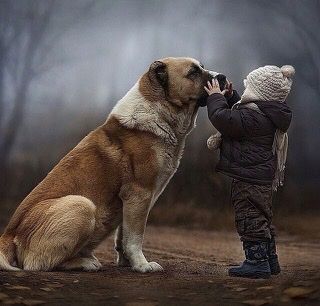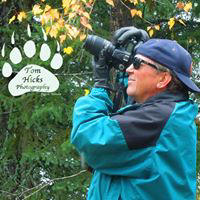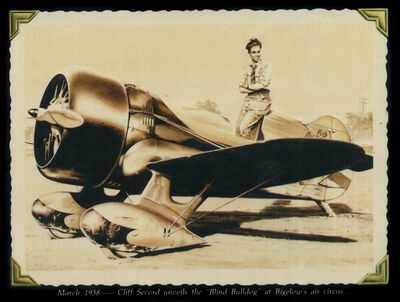I've Had a Slight Change of Mind
Oct 18, 2020 19:36:42 #
JohnSwanda wrote:
So if photography is only pushing the shutter button, and processing the photo is "digital art", then what is darkroom work? It has always been considered part of the photographic process. And if it is, then so is computer processing.
=======================
John SWanda...
My writings were in 'light' of the 'now-a-days' in modern world and young people, and all the modern digital cameras... As you will notice, I used the term.. light on the 'sensor' and not film.. ha ha
AND, yes, "photography" is the 'act of taking' the picture.. and and yes, there are steps afterwards... wither it be 'file' or 'digital sensor' BUT, please look at the definatition... You have 'making the photography'.. ie, 'click' and then you have the 'processing' which is either 'soup processing' .. or computer processing...... in the latter arena, it is 'Digital Art'
Photographic processing is:
... photographic development is the chemical means by which photographic film or paper is treated after photographic exposure to produce a negative or positive image.
With regards to your question, to be 'all inclusive' ... I should have added lines about 'film' and the 'photographic process'
Cheers
GeoVz
#####
Oct 18, 2020 19:59:39 #
Pixels are my paint. The camera sensor is my palette. PP is my canvas where I engage in a creative transformation of the pixels into a pleasing and relevant (to me) image. Sometimes I apply a good deal of processing, sometimes very little... But... Just as a painter manipulates the oils on the canvas until the image satisfies his artistic vision, so do I with my PP. Call that whatever you want, but that's about as complex as I get in the "Are you a photographer or just a hack?" discussion. I'll bet no one ever asked Van Gogh what kind of brush he used...
Oct 18, 2020 20:02:00 #
Oct 18, 2020 20:07:30 #
tommystrat wrote:
Pixels are my paint. The camera sensor is my palette. PP is my canvas where I engage in a creative transformation of the pixels into a pleasing and relevant (to me) image. I control the drama. I control the composition. I control the lighting. Just as a painter manipulates the oils until the image satisfies, so do I with my PP. Call that whatever you want, but that's about as complex as I get in the "Are you a photographer or just a hack?" discussion.
=====================================
ha ha ha........
Tommy, "Are you a photographer or just a hack?"
......... All Depends on ones perception, opinion, and 'all that B.S.' LOL
As the ole saying goes, "Everyone has an opinion; Opinions are like ... U Know What,...; Everyone has one; No two are alike; They all Stink; and you (the presenter) thinks his or her Opinion don't Stink... " LOL
I am Rembrandt, and you are Picasso ............ ha ha
That is my Opinion....... ha ha
Cheers
GeoVz
####
Oct 18, 2020 20:08:19 #
CHG_CANON wrote:
Beauty is everywhere when you have PhotoShop.
-------------
AND, a computer which is "Working" LOL
GeoVz
Oct 18, 2020 20:26:49 #
goldstar46 wrote:
======================= br John SWanda... br br M... (show quote)
The term "digital art" includes a lot more than just photo processing. I am proud of being a photographer rather than a digital artist. Your definition of photo processing obviously is from the film era. A modern definition would include computer processing. Google defines photography as "the art or practice of taking and processing photographs". If darkroom processing is part of making a photograph, then so is computer processing.
Oct 18, 2020 21:34:38 #
rmalarz wrote:
I'm not sure of the point you are trying to make. As for the question you pose, I'm sure they would have liked or not liked the styles.
The point was that these artists did their own work. They didn't rely on AI (sorry to use the term) to produce their work. They did the work.
--Bob
The point was that these artists did their own work. They didn't rely on AI (sorry to use the term) to produce their work. They did the work.
--Bob
...Bob...part of my point was the ability to mix studio work with a relevant background...like Elena Shumilova does with her photographs...photography doesn’t always have to be realistic (Rembrandt)...and I understand what you are implying about your work versus a preprogrammed sky...but is it ok to remove things that detracts from the photograph...?
Elena Shumilova

Oct 18, 2020 21:41:44 #
rmalarz wrote:
One of our members, Steve R, posited that techniqu... (show quote)
In the age of film, I pushed the button and had the Kodachrome processor do the rest. Today I press the button and have my camera do the rest as I directed it to. In both cases, my work comes in selecting the perspective.
Oct 18, 2020 22:31:33 #
Woo-Hoo! 10 pages already! This is the sort of topic that requires no specific knowledge or experience, so everyone feels free to chime in.
Including me.
FWIW, any art or engineering form is really about the end product. And just the end product. Does anyone really need to know how the scrap rock was blasted off Michelangelo's David? Or how that method differed from Carravagista's? Is it necessary to know what pigments Rafael or Manet used to appreciate their art?
Were power tools used to make Mt. Rushmore?
No. All these things, and many more, are interesting and complete our understanding of the artist and the work, but are absolutely unnecessary for appreciation of the work, and often even get in the way.
Every work of art is simply the artist's interpretation of the moment.
Which of the over 30 Monet paintings of the Rouen cathedral is the "right" one? And were any of them perfect copies of the view at the time?
Quite frankly, when I see an extraordinary photograph I really don't care how it was made. I simply revel in its beauty. I might wonder how it was made, and contemplate making a similar one myself, but I really prefer to simply be swept away by the magic of the moment. Does a magician's trick ever become more magical once you know how it was done?
Nope, spare me "How things should be" silliness about photography. Like most of you, I spent a lot of time accepting what Kodachrome thought my color palette should be. If it was not close enough, I'd filter or pick another film. How is that so different from post processing?
I also spent a lot of time with Marshall's Photo Oil Colors. Adjusting the contrast of the b&w print and then giving it the colors I want it to have. Sold a bunch of those 20x30s I did.
The end product is the point, not how you got there.
And having the ability to add clouds to a grey sky is a gift, not a cheat.
Including me.
FWIW, any art or engineering form is really about the end product. And just the end product. Does anyone really need to know how the scrap rock was blasted off Michelangelo's David? Or how that method differed from Carravagista's? Is it necessary to know what pigments Rafael or Manet used to appreciate their art?
Were power tools used to make Mt. Rushmore?
No. All these things, and many more, are interesting and complete our understanding of the artist and the work, but are absolutely unnecessary for appreciation of the work, and often even get in the way.
Every work of art is simply the artist's interpretation of the moment.
Which of the over 30 Monet paintings of the Rouen cathedral is the "right" one? And were any of them perfect copies of the view at the time?
Quite frankly, when I see an extraordinary photograph I really don't care how it was made. I simply revel in its beauty. I might wonder how it was made, and contemplate making a similar one myself, but I really prefer to simply be swept away by the magic of the moment. Does a magician's trick ever become more magical once you know how it was done?
Nope, spare me "How things should be" silliness about photography. Like most of you, I spent a lot of time accepting what Kodachrome thought my color palette should be. If it was not close enough, I'd filter or pick another film. How is that so different from post processing?
I also spent a lot of time with Marshall's Photo Oil Colors. Adjusting the contrast of the b&w print and then giving it the colors I want it to have. Sold a bunch of those 20x30s I did.
The end product is the point, not how you got there.
And having the ability to add clouds to a grey sky is a gift, not a cheat.
Oct 18, 2020 23:29:48 #
Shooter41
Loc: Wichita, KS
SkyKing wrote:
...Bob...part of my point was the ability to mix studio work with a relevant background...like Elena Shumilova does with her photographs...photography doesn’t always have to be realistic (Rembrandt)...and I understand what you are implying about your work versus a preprogrammed sky...but is it ok to remove things that detracts from the photograph...?
Who took the picture of the large dog with the child, or is that a famous painting? (I know I'm exposing my ignorance.)
Oct 19, 2020 00:46:08 #
ggttc wrote:
Is there anyone out there who has worked in a wet darkroom and not taped a quarter to the end of a coat hanger and did some dodging?
Yes. My early work as a metallographer was all technical for scientific publications. This type work did not allow dodging and burning. We could however alter overall exposure and contrast. All of my darkroom work was with black and white 8 x 10 sheet film.
Oct 19, 2020 06:04:22 #
Shooter41 wrote:
Who took the picture of the large dog with the child, or is that a famous painting? (I know I'm exposing my ignorance.)
...that’s Elena Shumilova’s work...she is on Flickr...her stuff is wonderful...!
Oct 19, 2020 09:06:04 #
Inagemeister and DAN Phillips are tight on! The amateur enthusiastic photographer is creating images. They must learn technique and in effect, become a master over their camera. I think that post processing which changes the image from what is seen to is wanted to be seen. It’s computer processing, not pure photography.
Oct 19, 2020 09:35:45 #
Thank you Eric
Fully agreed. But I photography is the of Framing, composing, and capturing scene or the image that represents the moment in time. That is photography
Sadly, many individuals refer to the entire process from beginning to end, including processing as photography. Although that may be a basic generic reference like "COKE", it is not the true definition of the act of photography itself.
After you capture the image using photography, the balance of the operation becomes "processing"
Cheers
GeoVz
####
Fully agreed. But I photography is the of Framing, composing, and capturing scene or the image that represents the moment in time. That is photography
Sadly, many individuals refer to the entire process from beginning to end, including processing as photography. Although that may be a basic generic reference like "COKE", it is not the true definition of the act of photography itself.
After you capture the image using photography, the balance of the operation becomes "processing"
Cheers
GeoVz
####
Oct 19, 2020 09:50:36 #
goldstar46 wrote:
Thank you Eric br br Fully agreed. But I photogra... (show quote)
Photography is about making photographs. Without processing, there is no photograph.
If you want to reply, then register here. Registration is free and your account is created instantly, so you can post right away.








